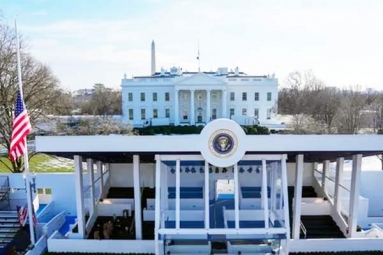
(Image source from: AP)
Israel's alleged attack on Hezbollah members via pager is another ominous development pushing the Middle East into an all-out regional war. Therefore, Hezbollah has no choice but to strike back with the full support of the Iranian-led resistance axis. The complexity and effectiveness of pager targeting is unparalleled. That attack killed at least 11 people, including some Hezbollah fighters, and injured more than 3,000. The main purpose of this attack, allegedly carried out by Israel, was to disrupt Hezbollah's communications and command and control systems in Lebanon. Since Hezbollah reduced its military's use of cellphones, pagers have become an increasingly popular messaging device among the group because Israel can easily identify and attack them.
Given the political differences in the country, the aim of this attack was to incite panic within the group and among those who do not support Hezbollah, the majority of the Lebanese population. Since Hamas attacked southern Israel on October 7, the Israeli leadership under Prime Minister Benjamin Netanyahu has repeatedly stated that it is determined to eliminate the threat posed by Hezbollah, which acts in solidarity with Hamas. Hours before the pager attack, the Netanyahu government announced that Israel's war goals included returning tens of thousands of Israeli residents to their homes in northern Israel who had been displaced by Hezbollah's apparent rocket attacks. Israeli Defense Minister Yoav Galant said the only way to achieve this was through military action. Therefore, Tuesday's simultaneous pager explosions could be a prelude to Israel's all-out attack on Hezbollah. Hezbollah has already announced retaliatory measures. We don't know what that will look like yet. The group has extensive military capabilities that allow it to attack northern Israel as well as other parts of the Jewish state, including populous cities like Tel Aviv, with drones and missiles.
Hezbollah demonstrated this capability in its 2006 war with Israel. The war lasted 34 days, during which 165 Israelis (121 IDF soldiers and 44 civilians) were killed and Israel's economy and tourism industry was severely damaged. Hezbollah and Lebanon's losses were much higher and at least 1,100 people were killed. However, the Israel Defense Forces (IDF) failed to destroy or neutralize the group. A successful retaliatory attack on an Israeli city could result in significant civilian casualties and jeopardize Israel's long-held goal of destroying Hezbollah and punishing its main sponsor, the Islamic Republic of Iran.
In a major conflict, the United States would remain committed to Israel's defense, while Iran would support Hezbollah by any means necessary. If the leaders of Israel and America think that they will refrain from doing anything that could lead Iran into war with Israel and America, they are wrong. Hezbollah is the central part of the regime's national and regional security paradigm. In addition to this group, the Iranian government has invested heavily in other regional affiliates, particularly Iraqi militias, the Houthis in Yemen, and the regime of Bashar al-Assad in Syria. The purpose of this “Axis of Resistance” was to create a strong deterrent against Israel and America.
Since its founding 45 years ago, the Iranian regime has viewed Israel and its primary sponsor, the United States, as an existential threat, just as Israel has viewed Iran. As a result, the administration has shifted its foreign relations to the United States' main enemies, particularly Russia and China. In fact, military cooperation between Russia and Iran has become so strong that Russia will not hesitate to support Iran and its affiliated countries in any war. Tehran is fully aware of Israel's nuclear capabilities. To prevent this, Iran has developed its nuclear program that reaches the threshold for developing weapons. Iranian leaders may also have received assurances from Russia that they would cooperate in defending Iran if Israel resorted to using nuclear weapons.
In the meantime, it is important to remember that Israel has failed to eliminate Hamas almost a year after destroying Gaza and decimating its population. His actions speak for themselves. The people of Gaza are constantly forced to relocate so that Israeli soldiers can operate in areas previously declared free of militants. The mission to defeat Hezbollah and its supporters will be a much larger goal. This poses a serious risk of war that all sides are preparing for, even if they say they don't want to. The pager attack is the latest in a series of operations that continue to threaten the possibility of a lasting ceasefire in Gaza that could stabilize the region and help pacify the conflict.










